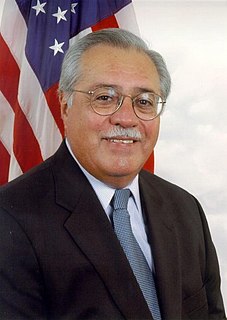A Quote by Eric Garcetti
We need a pro-worker trade approach that puts American jobs - not corporate profits - front and center.
Related Quotes
The TPP is another corporate-backed agreement that is the latest in a series of trade policies which have cost us millions of decent-paying jobs, pushed down wages for American workers and led to the decline of our middle class. We want American companies to create decent-paying jobs in America, not just low-wage countries like Vietnam, Malaysia or China. The TPP must be defeated.
I feel this way about it. World trade means world peace and consequently the World Trade Center buildings in New York ... had a bigger purpose than just to provide room for tenants. The World Trade Center is a living symbol of man's dedication to world peace ... beyond the compelling need to make this a monument to world peace, the World Trade Center should, because of its importance, become a representation of man's belief in humanity, his need for individual dignity, his beliefs in the cooperation of men, and through cooperation, his ability to find greatness.
There is a profiteer when it comes to oil. 36 to 63 cents per gallon is swept off the top. And who profits from that? The government profits from it. And what does the government do with much of that money? It puts it into so-called 'alternative energy,' with so-called phony 'green jobs' that we're yet to see being produced.
I think there's a big difference between the impact of trade agreements on corporate America and the impact on Mr. and Mrs. America. Corporate America has adjusted to them by investing lots of capital offshore... What we're doing is we're exporting jobs and importing products instead of exporting products and keeping jobs.
When he emerged Lou Dobbs the populist, he was so hard to peg. A mishmash of contradictions: anti-outsourcing, anti-globalization, pro-international-trade, pro-free-enterprise, anti-corporatism, pro-choice, pro-Second Amendment, pro-gay-marriage, pro-gays-serving-openly-in-the-military, pro-military, anti-war-in-Iraq-and-Afghanistan.






























